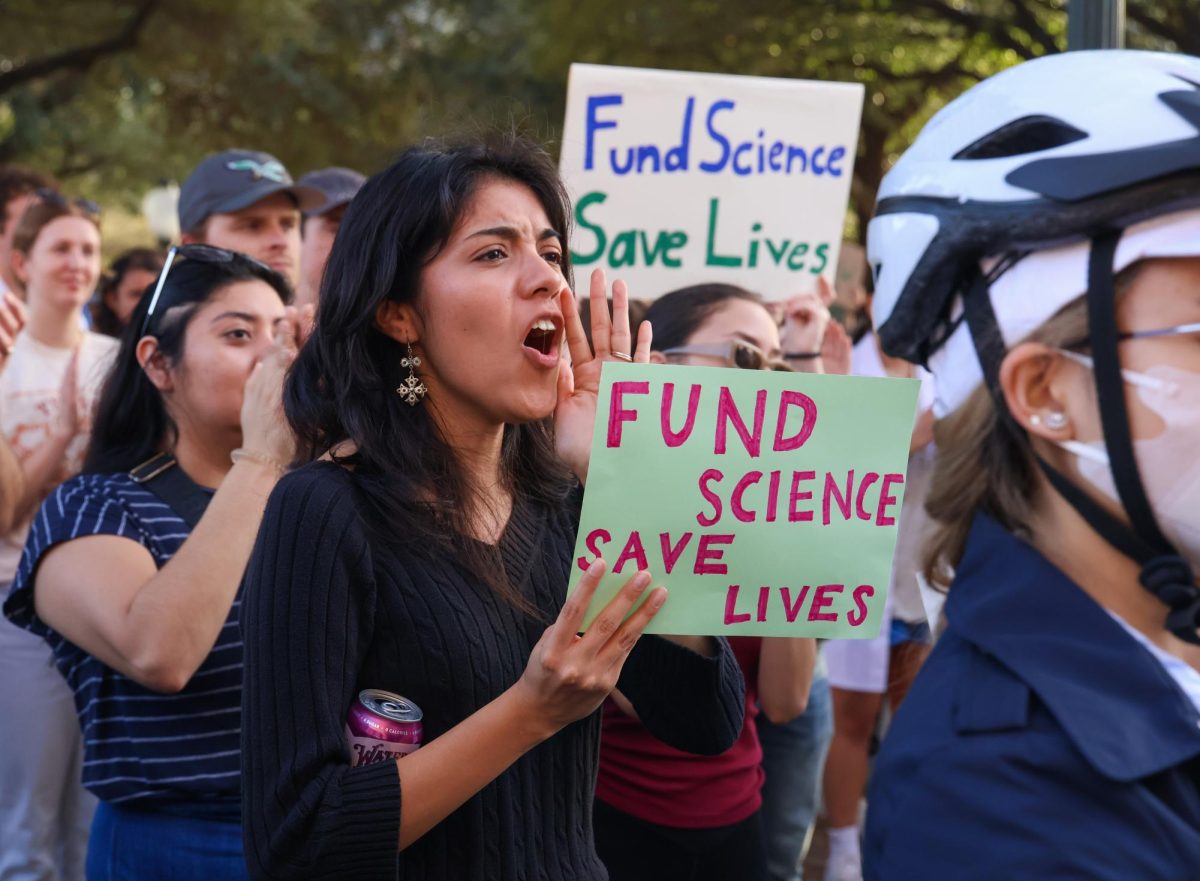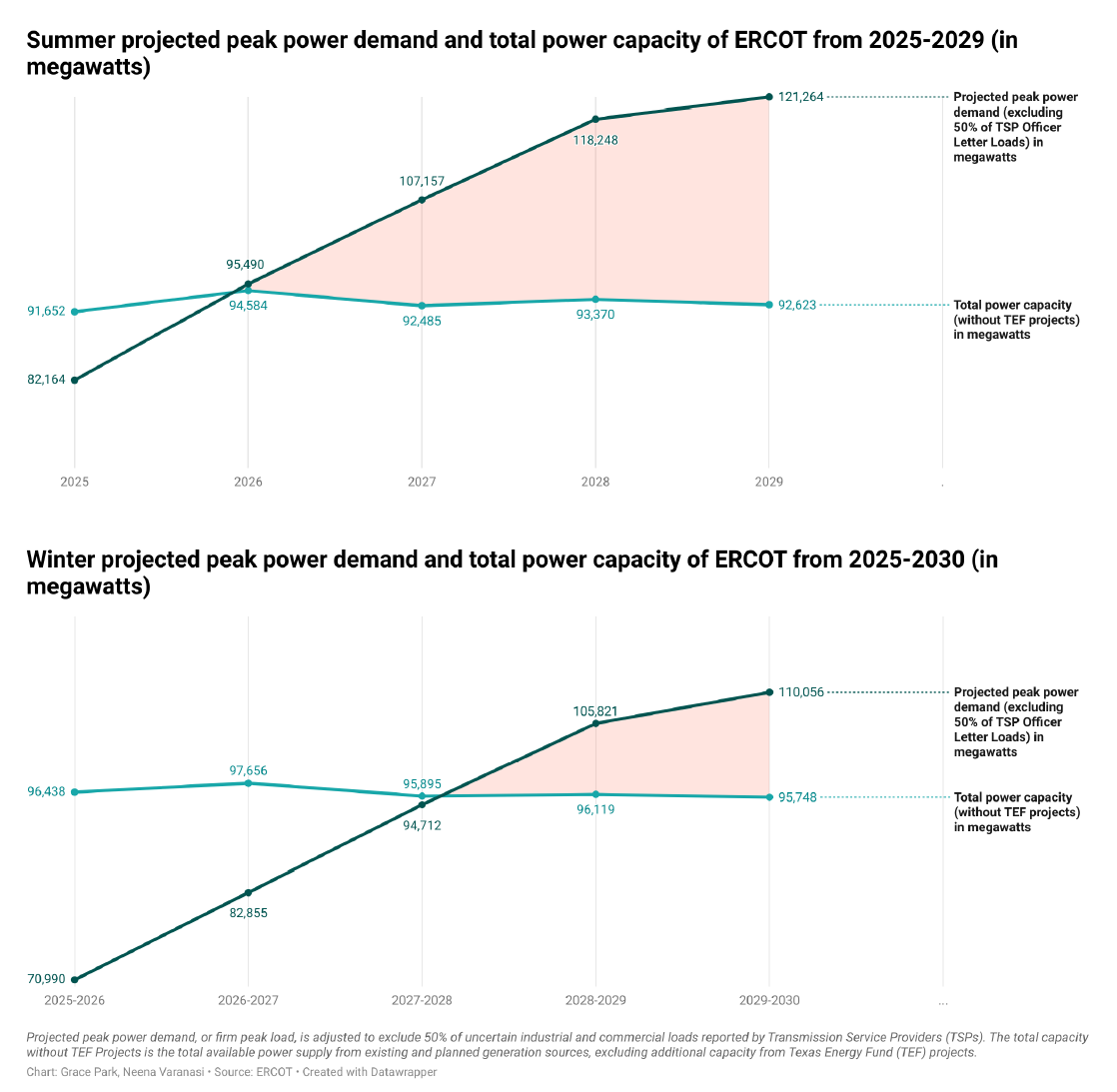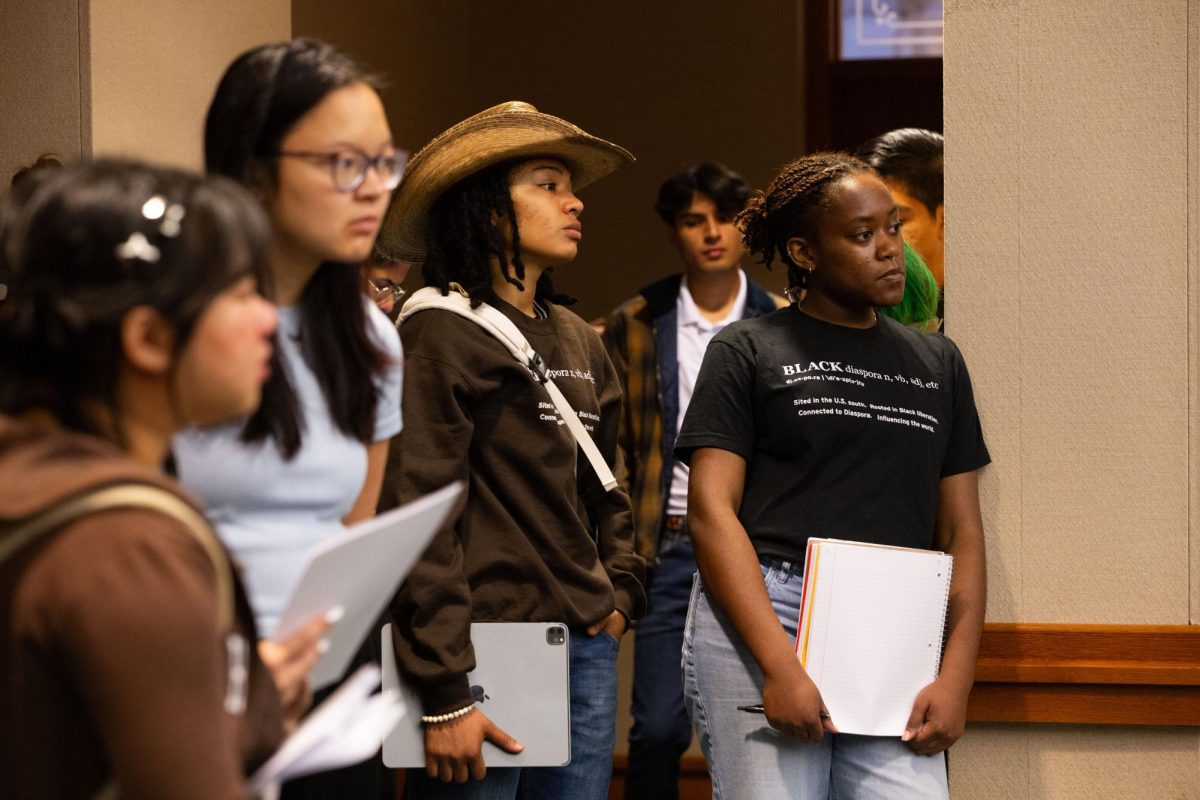Editor’s Note: Portions of the interviews were translated from Spanish to English.
Chemistry freshman Adrian Reyna and his family filed for citizenship before they came to the United States from Monterrey, Mexico, more than 10 years ago. Reyna, now 20 years old, still has not been approved.
He and other members of UT’s University Leadership Initiative — an organization of undocumented students and allies ¬— staged a walkout today and made their way to the state Capitol. The organization joined nearly 3,000 people from all over Texas to rally for inclusive immigration and community security reform at the Capitol on Tuesday.
“We believe that the voting capacity of Texas has grown,” Reyna said. “The Hispanic population has grown, and we can eventually get [legislators who do not pass comprehensive immigration reform] out of session.”
Reform Immigration for Texas Alliance organized the “Texas Can Do Better” demonstration in response to more than 60 bills regarding immigration policy in spite of the estimated $15 billion to $27 billion budget shortfall.
Proposed legislation includes withholding birth certificates from children born to undocumented parents, requiring public schools to verify students’ citizenship status and mandating law enforcement officials to verify the citizenship status of all arrested persons.
Adriana Cadena, the alliance’s coordinator, said the legislation that resembles the Arizona immigration-reform law could lead to racial profiling and break the trust between law enforcement and immigrant communities.
Sen. Jose Rodriguez, D-El Paso, said the bill could discourage immigrants from reporting crimes. America’s immigration system is broken and does not recognize the contributions immigrants make to Texas and to the nation, he said.
“You got a legal immigration system that takes up to 20 years for people to adjust their status and bring family members in the legal route,” Rodriguez said. “The budget deficit shouldn’t be balanced on the backs of working people, of immigrants that are here wanting to benefit their own and their families’ lives.”
He said the federal government, not the state governments, should be responsible for creating comprehensive immigration reform.
Ramona Casas — a member of A Resource in Serving Equality, which helps immigrants become members of society with community programs and classes — came with over 400 families from the Rio Grande Valley to voice the harm current immigration policies have on border cities and families.
“This affects us because we do a lot of interaction with Mexico and these reforms would affect our economy,” Casas said. “We want them to understand what we believe in as immigrant families, as Tejanos.”
Casas said the organization delivered more than 20,000 signed letters from border families to the Texas Legislature last year.
Rep. Charlie Geren, R-River Oaks, said the bill he authored would not prevent law officials from carrying out their duties and was not influenced by the Arizona immigration law.
“All 254 counties in Texas are checking the immigration status of every person incarcerated, but it’s voluntary by county,” Geren said. “If I can get rid of someone that’s breaking the law, I’m going to get rid of someone that’s breaking the law.”
Reyna said he agreed Texas should not house criminals.
“But I am not a criminal, and I am willing to give back in every way,” he said.




















